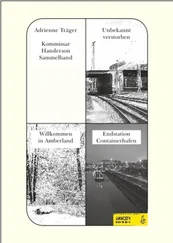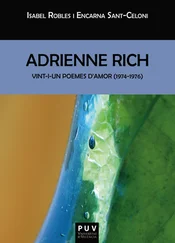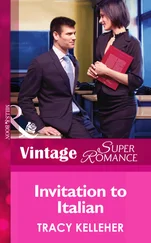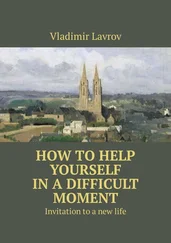After we’d settled the fruit and vegetable selection, the more glamorous flora would be brought in. Some I was planning to start from seeds: a tree called Voon’s banana that I had found in a catalogue, which purported to grow complexly flavored fruit and electric-pink flowers; some blue-tipped asters and iceberg superiors to use in floral arrangements around the school. But the administration didn’t want to wait around for sprouts; they wanted showy color right now. They wanted pop. And who could blame them? Already families were mustering outside the new structure, trying to peer in through the foggy glass. By the afternoon we’d be crowded over, and if everything went to plan, the first impression people had when walking into the greenhouse would be of entering another world, steamy, rich, and bright. Parents would imagine their own young flowers blooming under the care of the Donne School masters, and students would picture themselves in a wild new jungle of possibility. The opening of the greenhouse should, I’d been informed, set the tone for the whole school year.
By lunchtime I was sweating, my hair tied up in a messy bun. I thought I heard my name called once or twice, but whenever I turned to wave hello I found myself alone, a pack of girls bustling away down the path with their heads pressed together and hands clasped tight. Giggling, punching one another in the arm. It always went that way on the first day, I told myself, with unions resumed and pacts re-sealed; and so if I felt a prickling on the back of my neck or an uncomfortable rumbling in my stomach whenever a set of eyes homed in on me only to divert sharply away, I ignored it. At noon I ran my hands under the greenhouse tap, wetting the blue bandanna John had given me to tie around my neck and wiping the dirt and sweat from my face. I had a year’s pass to the dining hall, and although I’d also bought a hot plate and kettle with an advance on my salary, there was no time to cook for myself before the large exotics arrived. I’d need to be on hand to supervise where they were placed, how they were arranged; to make sure the watering system was correctly installed, and that there were fans angled around the room to provide proper airflow to every corner.
“Lunch?” I said to John. All summer we’d eaten together midday, choosing from the bare-bones selections the cafeteria provided for the year-round staff, and I knew that with students and parents present the food would be more carefully prepared, a table of fresh-baked pies—apple, cherry, peach, pecan—set out to accompany the beef stroganoff and chicken à la king. “Just a quick one.”
“Oh, in there?” He frowned towards the dining hall. “No, hon. Siobhan packed me a sandwich. There’s some to share, if you want.”
I considered the offer. Eating in the greenhouse was faster and easier; we’d finish in time to double-check our staging plan before the first truck showed up, and make sure no interlopers snuck in before the unveiling. It made sense, and I knew I ought to say yes. But I couldn’t help feeling the reflected glow of the new semester on my skin—an afterglow, really, in my case—and wanting to take part to whatever degree I could. The festival air was so familiar that I half expected Margaret to turn the corner and give me a perfunctory wave. Plus, I knew the limitations of my own cooking, and didn’t look forward to the months of scrambled eggs and sardines on toast that stretched ahead of me. A mouthful of hot food would do me good, I was sure.
“Ok, I’ll see you in half an hour, then,” I said. John raised his eyebrows and dug around in the knapsack he’d thrown into a corner several hours ago, pulling out a pastrami on rye.
“Your funeral,” he told me. A strange choice of words, or so I thought at the time.
20.
Approaching the dining hall, my toes and fingertips tingled with goodwill. So many people hugging hello and good-bye. Such a fever of affection. None of the girls remembered yet that they’d have coursework beginning the very next day, long afternoons with mimeographed articles and eight A.M. classes to pull themselves out of bed for. They saw only the intermezzo: timing things just right to hand off notes in the hall between Geometry and European History II; the late nights of punch-drunk study parties that made seven-thirty alarm clocks so impossible. Spying a cute boy in town and pretending to have business the same direction he was strolling, coming up with terrible excuses to walk past the public high school or the arcade—or, if their tastes ran a bit more to silver, past the Eagles Club. All summer the campus had felt empty and bleak, but now it was home again.
As I picked up my tray, one of the cooks spotted me from across the room and gestured furiously. John O’Brien and I often stayed to chat with the ladies over coffee, so I knew them all by name. This was Hilda, and running up behind her was a younger worker named Nadine. I waved back and flashed them a smile. Just then, someone knocked into my left elbow, sending my tray skittering onto the floor. “Oh!—” I said, as a group of students pushed ahead of me towards the entrée line. They didn’t look my direction, just tossed their hair and kept on chatting—something about wanting to avoid the leftovers, which didn’t make sense, since this was Welcome Day. I assumed they hadn’t seen me, and grabbed a new tray, sliding behind the threesome and grabbing a plate of stroganoff on a fresh bed of noodles. Hilda shouldered her way through the hungry crowd and ran over to me. She grabbed my elbow and steered me away from the line, picking up a piece of strawberry rhubarb ( New flavor! was still all I thought) on the way to a table in the far corner of the hall.
“Why are you here?” she hissed.
“Lunch?” The confusion must’ve shown on my face, though a dim glimmer of awareness was starting to break through. All around the room, groups of students and even a few parents were taking peeks at me from the corners of their eyes.
“But not now ,” Hilda said. “The vultures are out.”
“Don’t be ridiculous.” I tucked a napkin—cloth, for today only—onto my lap and took a bite of pie. As a graduate I felt quite adult, and had decided I was allowed to eat dessert first if I wanted. “Who’s a vulture?”
“Hmm,” said Hilda. She watched me eat the pie, my face growing pinker with each mouthful. Leftovers , the girls to the right of us whispered. So sad. So pathetic. It’s putting me off my appetite. I finished the pie and turned to my proper lunch, but before I could make much headway an entire table of third-years walked up and clattered their trays down next to me, a few scrapings left on each plate. My cheeks were now quite red and hot.
“The kitchen’s right there,” I said. The bus tubs, where you were supposed to place your dishes for washing, were still almost empty.
“Ohhhhh.” One of the girls, who I thought was named Kay, stopped and looked over her shoulder at me. “We knoooooow, but we just thought you were looking for scraps.” She smiled, her eyebrows aloft with innocence. “We wanted to help!”
I looked down at my food, and then over to Hilda. Her face was stern and set.
“Come on, you ninnies,” she said. “Do your own dirty work.”
Kay smiled wider, coming around to retrieve her tray. Her hair was yellow and tied back in a braid, which she flipped over her shoulder like a mink.
“You know,” she said, “we thought we already did.”
Hilda and I watched each girl flounce up and remove her tray, scraping the extra food carefully into a trashcan before placing their plates in the tubs. They tsk ed about the waste, but we didn’t make another sound until all of them were done and gone. It was only then I realized they’d taken my tray, too. My eyes stung, but I blinked and kept my gaze steady.
Читать дальше












